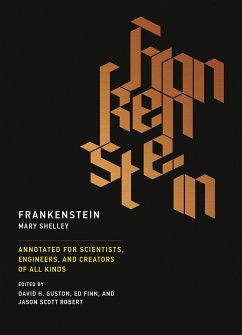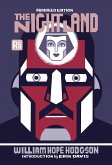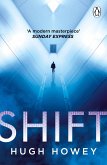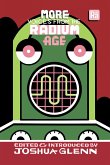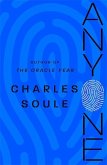The original 1818 text of Mary Shelley's classic novel, with annotations and essays highlighting its scientific, ethical, and cautionary aspects.
Mary Shelley's Frankenstein has endured in the popular imagination for two hundred years. Begun as a ghost story by an intellectually and socially precocious eighteen-year-old author during a cold and rainy summer on the shores of Lake Geneva, the dramatic tale of Victor Frankenstein and his stitched-together creature can be read as the ultimate parable of scientific hubris. Victor, the modern Prometheus, tried to do what he perhaps should have left to Nature: create life. Although the novel is most often discussed in literary-historical terms as a seminal example of romanticism or as a groundbreaking early work of science fiction Mary Shelley was keenly aware of contemporary scientific developments and incorporated them into her story. In our era of synthetic biology, artificial intelligence, robotics, and climate engineering, this edition of Frankenstein will resonate forcefully for readers with a background or interest in science and engineering, and anyone intrigued by the fundamental questions of creativity and responsibility.
This edition of Frankenstein pairs the original 1818 version of the manuscript meticulously line-edited and amended by Charles E. Robinson, one of the world's preeminent authorities on the text with annotations and essays by leading scholars exploring the social and ethical aspects of scientific creativity raised by this remarkable story. The result is a unique and accessible edition of one of the most thought-provoking and influential novels ever written.
Essays by
Elizabeth Bear, Cory Doctorow, Heather E. Douglas, Josephine Johnston, Kate MacCord, Jane Maienschein, Anne K. Mellor, Alfred Nordmann
Mary Shelley's Frankenstein has endured in the popular imagination for two hundred years. Begun as a ghost story by an intellectually and socially precocious eighteen-year-old author during a cold and rainy summer on the shores of Lake Geneva, the dramatic tale of Victor Frankenstein and his stitched-together creature can be read as the ultimate parable of scientific hubris. Victor, the modern Prometheus, tried to do what he perhaps should have left to Nature: create life. Although the novel is most often discussed in literary-historical terms as a seminal example of romanticism or as a groundbreaking early work of science fiction Mary Shelley was keenly aware of contemporary scientific developments and incorporated them into her story. In our era of synthetic biology, artificial intelligence, robotics, and climate engineering, this edition of Frankenstein will resonate forcefully for readers with a background or interest in science and engineering, and anyone intrigued by the fundamental questions of creativity and responsibility.
This edition of Frankenstein pairs the original 1818 version of the manuscript meticulously line-edited and amended by Charles E. Robinson, one of the world's preeminent authorities on the text with annotations and essays by leading scholars exploring the social and ethical aspects of scientific creativity raised by this remarkable story. The result is a unique and accessible edition of one of the most thought-provoking and influential novels ever written.
Essays by
Elizabeth Bear, Cory Doctorow, Heather E. Douglas, Josephine Johnston, Kate MacCord, Jane Maienschein, Anne K. Mellor, Alfred Nordmann

Nicht mal eines Namens wurde das Geschöpf für würdig befunden, immer heißt es nur die Kreatur oder das Monster, Frankensteins Monster. Der Doktor Viktor Frankenstein hatte einen perfekten künstlichen Menschen schaffen wollen, aber was bei seinem Experiment herauskam, war so abschreckend, dass es nirgends zugehörig sein durfte. Der absolute Outsider.
Wenn er in ein Dorf kam, fielen die Frauen in Ohnmacht, Steine wurden geschleudert. Das naive und empfindsame Monster floh aufs Land und erklärte der menschlichen Spezies den Krieg. Mary Shelleys „Frankenstein“, erschienen 1818, ist ein revolutionäres Buch, das von Identität und Freiheit handelt. Zur Kultfigur wurde das Monster 1931 durch den Film von James Whale – der als Homosexueller ums Außenseiterdasein wusste. Da fingen die Menschen an, sich ihrer eigenen Monstrosität bewusst zu werden. Und so etwas wie sympathy for the monster zu empfinden.
GÖT
Mary Shelley: Frankenstein. dtv, 304 Seiten, 8,90 Euro.
DIZdigital: Alle Rechte vorbehalten – Süddeutsche Zeitung GmbH, München
Jegliche Veröffentlichung und nicht-private Nutzung exklusiv über www.sz-content.de
[The editors's] expertise speaks to Frankenstein's enduring message about existential stakes and the potentially alarming societal consequences likely to devolve from the unfettered march of science and technology. Concerns about unintended consequences were urgent at the onset of the Industrial Revolution and the Nuclear Age, and they are, if anything, more urgent now. Los Angeles Review of Books
The critical essays accompanying the text are eclectic, cross-disciplinary, and incisive....authoritative, yet accessible, and firmly situates both Shelley and her novel in relation to our contemporary tech-oriented age.
Lawfare
This newly annotated edition of the classic wrests the text from English majors and hands it to STEMers, but also brings the concerns of literature moral weight, literary device, creativity to readers at risk of underestimating their importance.
Atlas Obscura
The critical essays accompanying the text are eclectic, cross-disciplinary, and incisive....authoritative, yet accessible, and firmly situates both Shelley and her novel in relation to our contemporary tech-oriented age.
Lawfare
This newly annotated edition of the classic wrests the text from English majors and hands it to STEMers, but also brings the concerns of literature moral weight, literary device, creativity to readers at risk of underestimating their importance.
Atlas Obscura

